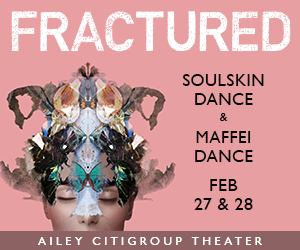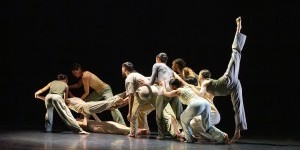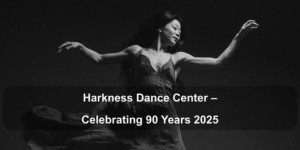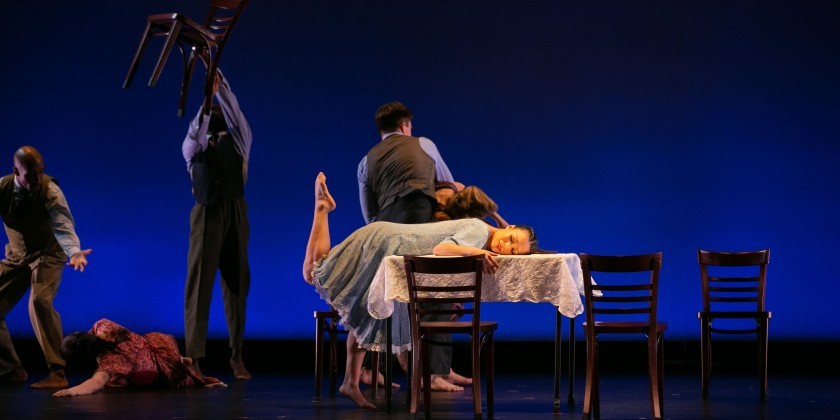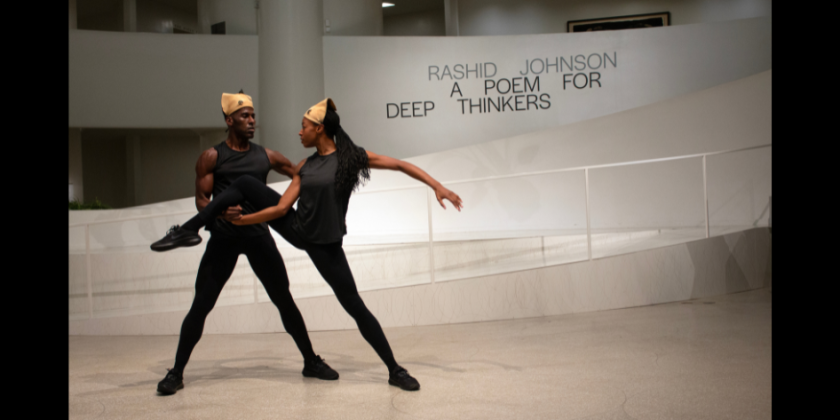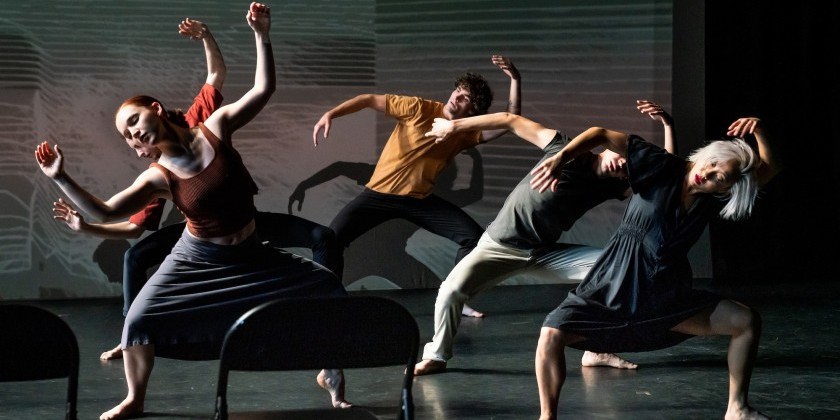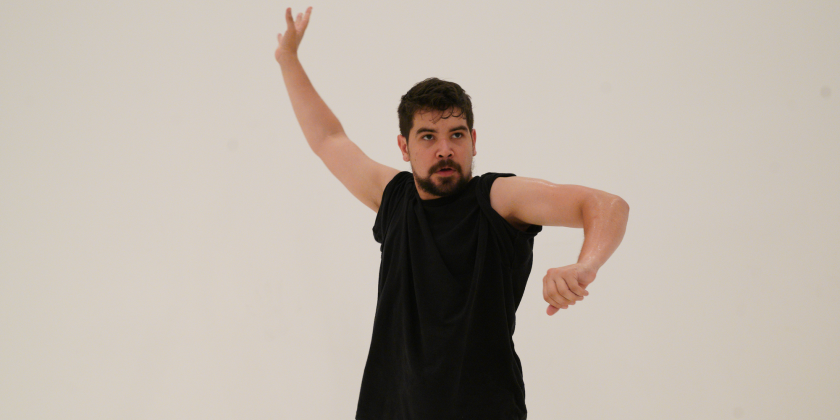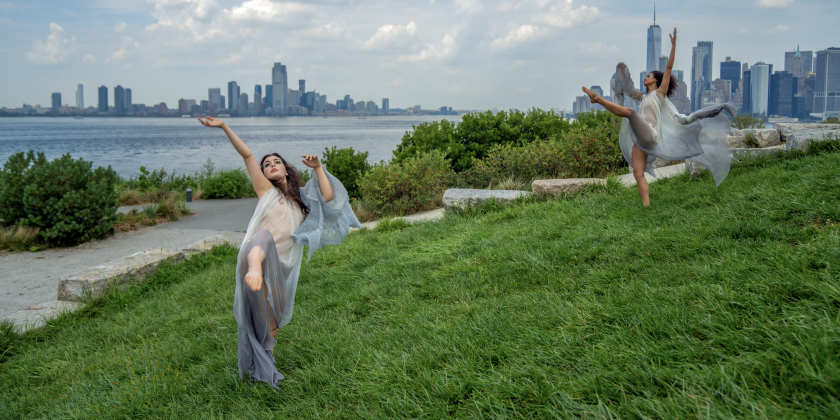IMPRESSIONS: The First Annual Mobile Dance Film Festival at the 92Y
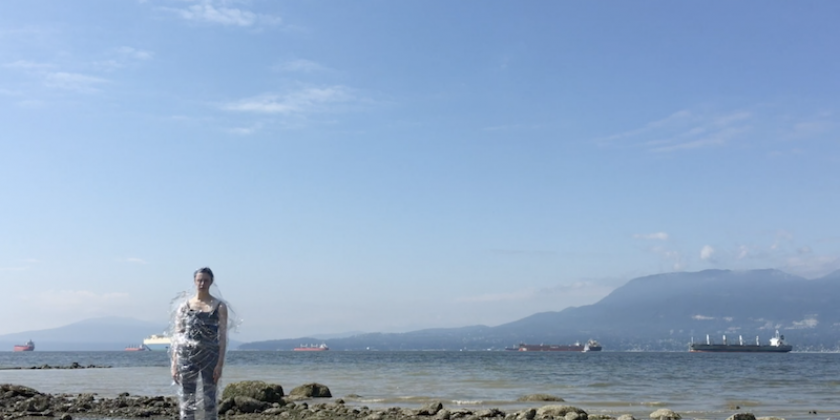
Films: Paige Barnett/Alexis Young, Eric Berey, Jay Carlon, Emma Cohen, Brandon Coleman, Norberto Collazo, Pawel Cukier, Adrian Del Arroyo, Nicola Hepp, Raven Jackson/Donald C. Shorter, Oleg Klevakin, Lisa Kusanagi, Leyla, Sarah Lapinsky, Ariel Monticure, Claudio Pelizzer, Elijah Richardson, Rami Shafi/Pedestrian Wanderlust, Siostry, Max Stone/Travis Waldschmidt, Isabella Vergara, Nurlan Zamiyev
The next time you find yourself stuck in a deserted Russian airport, be like Jay Carlon. Skidding across slippery floors and boogieing down escalators, he wiles away the hours darkest before dawn, filming himself on his smartphone as he goes. For the next couple of years, he continues to record himself jiving in far-flung locations before splicing them together to form Dance Film Selfie. During the last clip, as he grooves on a median, a police car rolls alongside him to check his identification — the law apparently suspicious of the son of migrant workers dancing publicly.
Carlon’s video is one of the many at the first-ever Mobile Dance Film Festival at the 92Y. The brainchild of Andrew Chapman, the festival received 53 entries from around the world. Five jurors selected the two-dozen films that were presented over two showings and on iPads in the lobby. Regardless of the videos’ tone or content, one thing is certain: The smartphone has enabled artists to escape dance’s time/space conundrum to unleash their creativity in surprising ways.
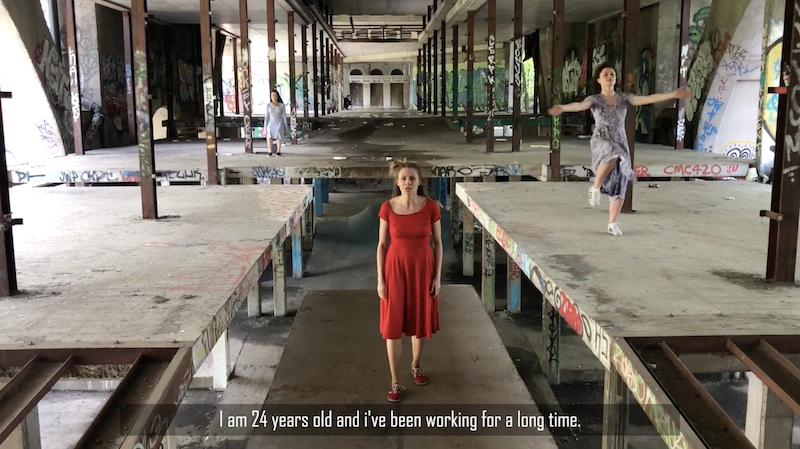
The motto of the festival could be “have smartphone, will dance” as artists break free from the four walls of the studio and theater. Pawel Cukier’s Dancing displays alternating shots of a man blissfully moving in a pool. In one, he opens his arms wide as if he wants to hug the whole world; in the second, he slaps through the Macarena.
New York gets a lot of love as a setting, notably in Rami Shafi/Pedestrian Wanderlust’s two infectious films. During Blind Date Duet, strangers meet for an improvisational pas de deux on Nevins Street. Nicole Wolcott in Washington Square Park is pretty much just that. An effervescent Wolcott makes merry in the fountain with park-goers.
The smartphone camera offers myriad perspectives to view a dancer: up close, faraway, god’s eye, in the round. Periscope (Paige Barnett/Alexis Young) opens with an elegant woman sitting at a vanity, going through the pre-performance ritual of making up her face. One moment, we are she, gazing at ourselves in the mirror; next, we are the mirror, watching her poke and prod at her face. Sometimes, we are above her, detached from her machinations. It’s not just the viewpoints that hopscotch from first to third, from limited to omniscient. Our emotions do too, from sympathetic to anxious to objective and back again.
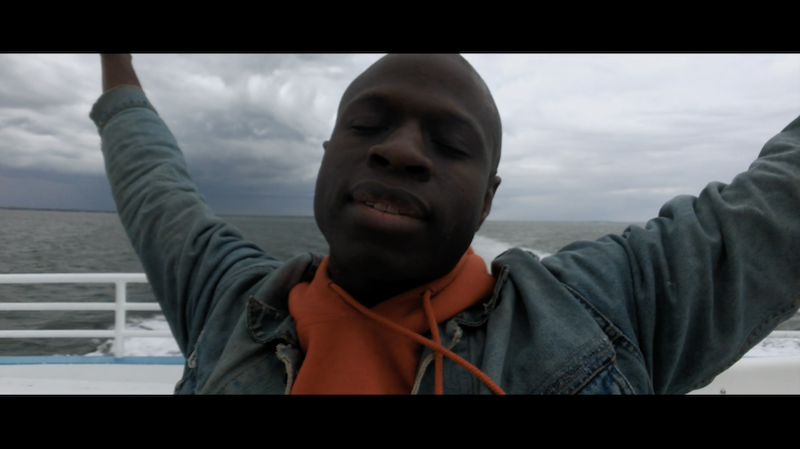
The distance from performer to audience dissolves, allowing texture and details to seduce with their specificity. During A Guide to Breathing Underwater (Raven Jackson, Donald C. Shorter), the orange strings of Shorter’s hoodie dangle against his frayed and faded jean jacket. Their contrast emphasizes the disconnection he feels between the bustling Fulton Street subway station and his need for serenity. The filmography foreshadows the ending: Shorter at the beach, dancing nakedly.
Linking together quick cuts of brief clips condenses a story into a mere minute, the boring business of getting from one place to another deleted. In My Cup of Tea (Max Stone/Travis Waldschmidt), images rapidly accrue of an older woman performing her morning routine: brushing her teeth, dusting her belongs. The pacing relaxes once she’s settled in a chair with a cup of tea to observe children playing outside. Using the same slice and dice approach, the male dancer of He (Oleg Klevakin) snaps from walking to sitting, from movement to stillness. The result is a dance without transitions — a Cliff Notes of bodily virtuosity.
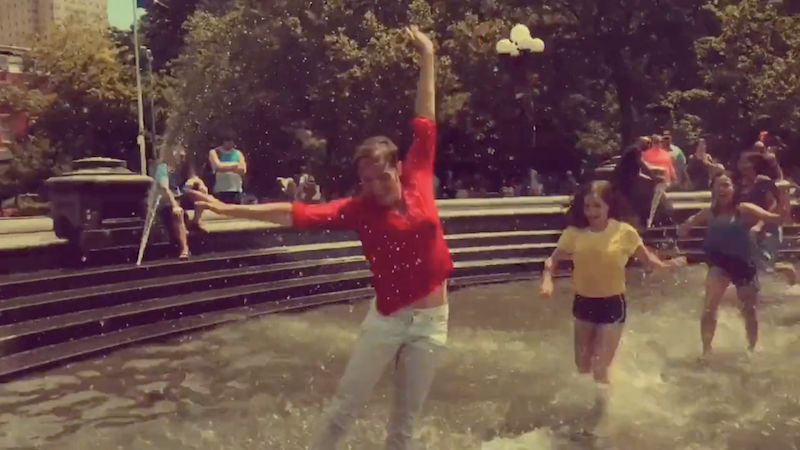
Most of the films run shorter than a typical dance piece, yet they still convey a mood or narrative. During the tense, frightful seconds of Breathe (Nicola Hepp), a woman tries to inhale and exhale against the backdrop of an eerie forest. Meet Me in My Dreams tells a full-fledged story of an artist enflamed by a beautiful woman dancing alone. He imagines them meeting at a coffee shop and then wriggling through an ardent International Rumba. Unfortunately, when Cupid gives him the chance to turn his daydream into a reality, he stays put and the woman leaves. The moral of the story? Ask the lady to dance.
Dance on stage is many things — magnificent, emotional, thought-provoking. It is not, however, often funny, the dancer elevated and spotlighted into a demi-god of sorts. On film, though, the humanness is undeniable and charming. Nowhere is this more evident than in Bathroom of Seville (Elijah Richardson). Four women jitter and scowl as they wait in line for the restroom. A man pas de chats out of nowhere, smirking as he struts into the empty men’s room. Once he departs, the women rush in. That’s a slice of life one rarely sees on stage.
The Mobile Dance Film Festival will return next year, so get your smartphones ready. In the meantime, this year's selections are available for viewing through August 31st.
The Dance Enthusiast Shares IMPRESSIONS/ our brand of review and Creates Conversation.
For more IMPRESSIONS, click here.
Share your #AudienceReview of performances for a chance to win a prize.




